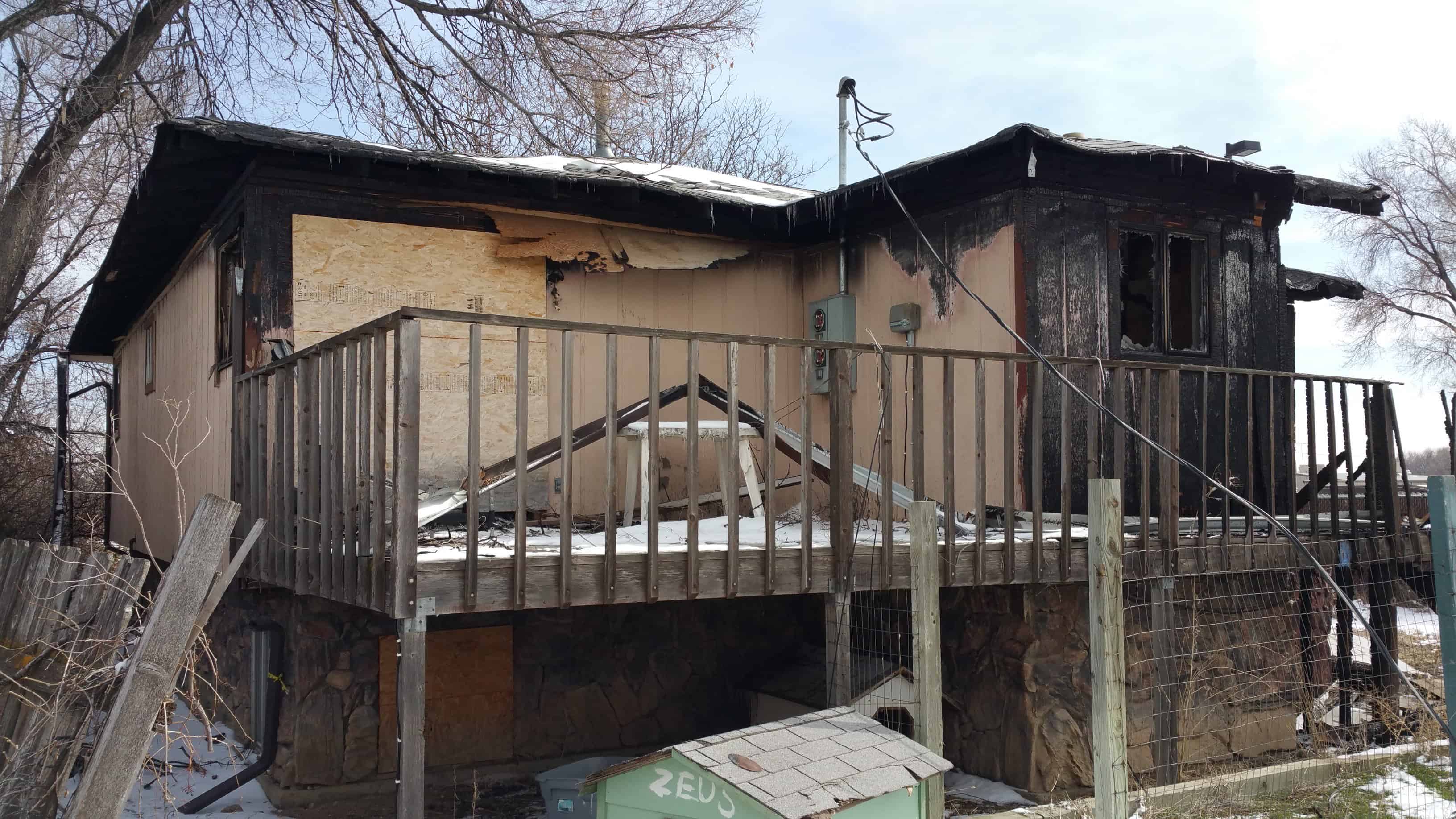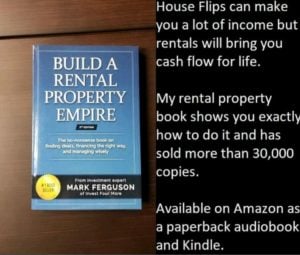
How to Buy & Finance a House that Needs Repairs
Houses that need repairs often can be bought below market value. I base my investing strategy on buying houses below market value and financing those properties, which is not always easy. When you buy a house that needs repairs, many lenders will not lend on that house if the repairs affect the livability of the home. Whether you are an investor or owner occupied buyer, repairs can cause a deal to fall apart. This is why cash offers are so attractive to many sellers who have a house that is in need of work. If you are an investor or an owner occupied buyer there are ways to get a loan on a property when it needs repairs; even extensive repairs.
Why can’t you get a loan on houses that need work?
Most lenders will use FHA guidelines to decide what condition a home needs to be in order to loan on it. That means all major systems like the plumbing, electrical and heating need to be in working order. The roof needs to be in good condition and there cannot be any holes in the walls or floors. FHA used to require flooring to be in good condition, but that is no longer the case. All the carpet can be missing from a home and it will still go FHA. The tricky part is that not all lenders go with exactly what FHA requires.
An FHA loan is federally insured by the government and is a big reason why owner occupants can buy homes with little money down. Conventional loans are loans that are not federally insured or sponsored by any government agency. There are many types of conventional loans and many different requirements on conventional loans depending on who the lender is. Some conventional loans will require everything FHA requires, some less and some more. My lender will not require any repairs to be made on homes that are in horrible condition. If you have one conventional lender that will not loan on a home, that doesn’t mean another conventional lender will have the same guidelines.
There are other loans that are sponsored by the government like VA and USDA. Different states also have loan programs that will have varying requirements. Most government loan programs will have the same or stricter requirements than FHA.
Loan options for different sellers
There are many options to work through lender required repairs. Your choices will differ depending on if you are an owner occupant or an investor. The first strategy is to ask the seller to make repairs so the home is in livable condition. What situations allow the seller to make repairs?
Traditional seller
If a seller is selling a home for retail value, they usually expect to make repairs if the lender requires them. To get top dollar for a house you have to have it in livable condition. For those of us that want a great deal, we are usually dealing with sellers that want to sell quickly without doing any repairs. The better deal you are getting, the lower the chance the seller will make any repairs.
REO properties:
REOs are foreclosures that are owned by the bank. Some REO sellers will make repairs and some will not. The decision to repair or not is usually made on a case by case situation based on how much work is needed. Many REO sellers will say a home is sold in as-is condition, which indicates they will not make repairs. However, some REO sellers will still make repairs if required by the lender.
HUD Homes:
HUD will not make any repairs under any circumstance for lender required items. HUD does have a program to allow FHA buyers that I will discuss later. If you are an investor and your lender requires repairs to be made, you will have to cancel the contract or find a new lender.
Short sales:
Most short sale sellers do not have a lot of money. If you know a short sale needs work and your lender will require things to be done before closing, there is a great chance the work cannot be done. The sellers are receiving no money in most short sales and they don’t want to spend any more money on the house.
Auction sales:
Don’t expect to have any repairs done on auction properties. Properties that are sold at auction are almost always sold in as is condition and will not be repaired.
Know what the bank requires before writing an offer on a house that needs repairs
When you are shopping for a house you should have already talked to a lender and you should know what condition they will require a home to be in. If you are using a conventional loan on a HUD home and the water can’t be turned on, but your lender requires the water to be turned on, guess what will happen? The contract will fail. If a short sale needs $10,000 in work for you to get a loan, the deal will probably never go through. On an REO or a traditional sale, repairs may or may not be made by the seller. Don’t expect HUD or an REO seller to make repairs because your lender requires it.
What if you will live in the house?
If an owner-occupant wants to get a loan on a house that needs repairs, but the seller won’t repair the home; the deal is not always over. HUD offers a program for FHA buyers that allows them to escrow for repairs and add the repairs into the buyer’s loan. HUD’s program is called the FHA 203b loan. It can only be used on HUD homes and the repairs are less than $5,000. This escrow cannot be used on any other type of loan like VA or conventional. For repairs over $5,000, there is an FHA 203k loan that can be used on any house. This loan can have an unlimited amount of repairs but will take more time to close and have more fees. FHA loans are only available for owner occupants.
What if you are an investor?
An FHA 203k rehab loan is not available to investors, which makes it harder for an investor to deal with homes that need repairs. That doesn’t mean investors are out of luck when buying homes that need work. I buy homes that need a lot of work all the time and I get loans on almost all of them.
I use a portfolio lender that does not have any repair requirements for homes that I buy. I can buy houses with bad roofs, bad heating, and my lender does not even require the utilities to be on. Not all portfolio lenders have the same requirements with repairs, but many will work with investors much more than the big banks. My portfolio lender has saved many deals for investors and owner-occupants whose original lenders would not lend on a house because it needed too much work.
It is sometimes possible to escrow repairs. In some cases, you can escrow the repairs so that they are done after closing as an investor. The terms and chances of this happening all depend on the lender. Usually, the lender will escrow for minor repairs but may be hesitant to escrow for major repairs.
There is also a Homestyle Fannie Mae Renovation loan that investors can use to repair houses after they close. This loan is like the FHA 203k loan but meant for investors.
If you are an investor and your lender will not loan on a house that needs repairs and the seller will not make repairs; don’t give up. Search for a local portfolio lender who might have different guidelines and will give you a loan.
Hard money lenders
Another option for investors besides portfolio lenders is hard money lenders. Hard money lenders will be much more expensive than conventional lenders and they offer short-term loans; usually less than one-year terms. Hard money usually works better for fix and flips, because of the short loan term. Hard money lenders may be a decent short-term solution for rental properties, but you will have to refinance the loan very quickly.
Conclusion
Getting a loan on houses that need work is tough, but it is not impossible. An owner-occupant has many more options to buy houses in need of repairs, but an investor should be able to work around repair issues as well. Buying houses that need repairs is one of the best ways to get a great deal on an investment property.
My book Build a Rental Property Empire, goes over the BRRRR method, and, more specifically, financing properties that need repairs. It also covers how to find deals, finance rentals, manage them, and much more! It is available as a paperback and ebook on Amazon or as an audiobook on Audible.
Join me on The $100M Mission!
Get exclusive updates as I work to own $100M real estate by 2030 in today's market. Whether you're just starting out or already investing, you'll get actionable insights from my real-world deals and setbacks.
Plus, I'll help you set and achieve your own ambitious goals. Transform your financial future - subscribe now for weekly updates.
Together, we'll prove that massive success in real estate is still possible.

Fantastic article!!!
This website is full of so much information!
Thank you!
Good article Mark! I was going to ask this similar question on our call on Monday.
Thanks Rich!
Nice article, Great information for anyone who needs to know, we get clients all the time asking this, Cheers!
Thank you!
Rob, lenders can be very picky and many are much pickier than fannie or fha guidelines.
These comments are prompting odd back links for our site. Can you please remove Rob Shepherds link in his comment above? I am his web master. I would really appreciate it. The comment can stay, but can you remove the link? Thank you 🙂
There are several programs available, Fannie Mae has a few; EZ-C, Homestyle, , FHA of their 203K full and streamline, also available is USDA-RD repair escrow, VA , the nice thing about these programs, you can close on the loan, monies are held back for the renovation, complete the job then pay off the contractors. very simple, however, you, the lender, realtor, or relatives cannot do the repairs.
Where can I find a lender who gives these types of loans?
A good real estate agent should be able to help
Is it harder to get a loan if the septic system is need of replacing and brought up to code. The county Health Department inspection said it needed to be replaced. The seller is not willing to do this repair.
Yes!
Nice Article .
All information is really good or useful
Thank you